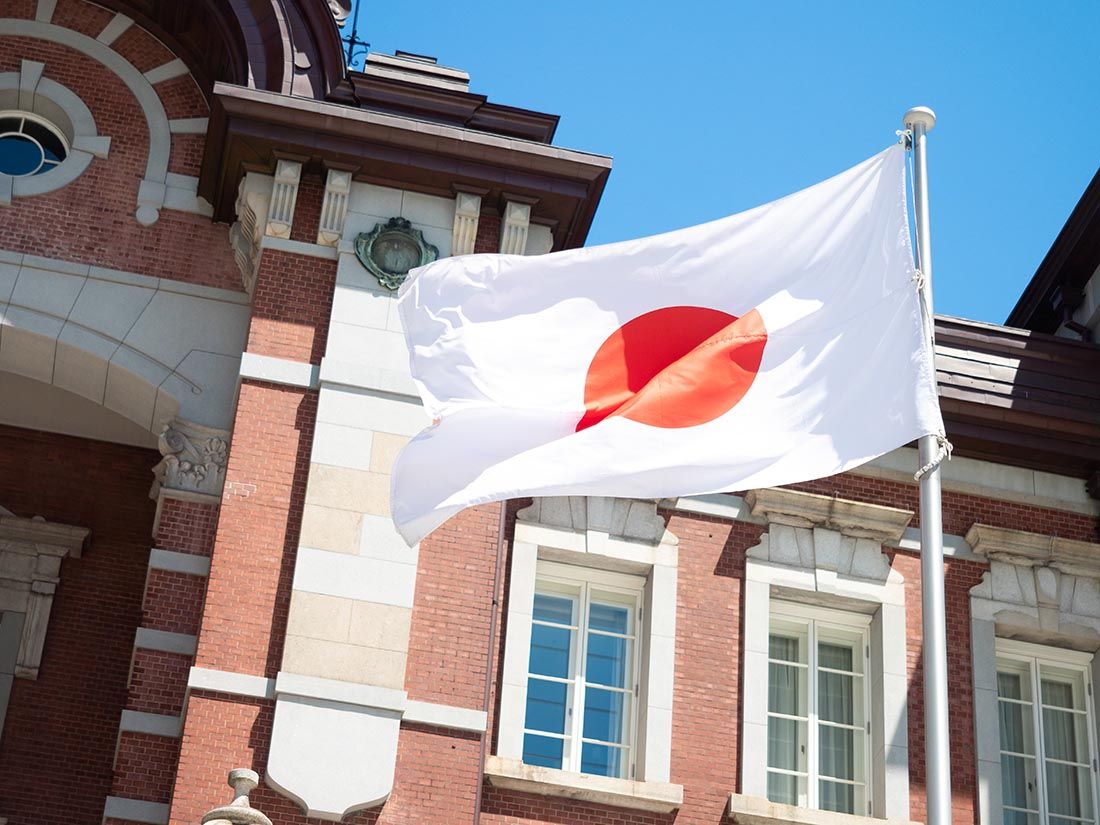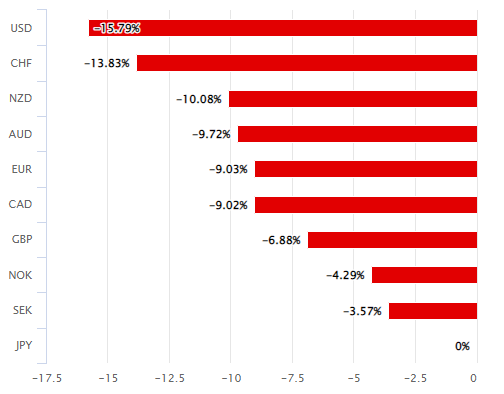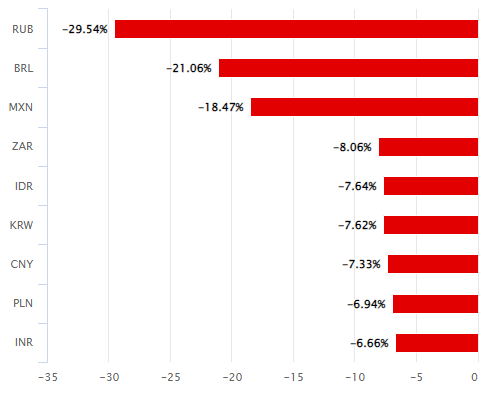Material Japanese Yen Rally Likely if BoJ Calls Last Orders to Bond Market
- Written by: James Skinner
-
"Covering of these JPY shorts alone could take USD/JPY significantly lower, more so if the initial JGB reaction was an overshoot in yields" - RBC Capital Markets.

Image © Adobe Stock
The Japanese Yen was the market's heaviest faller during the big U.S. Dollar rally of this year but it has performed better in recent weeks and would be likely to benefit from a material rally if nascent speculation about a possible shift in Bank of Japan (BoJ) monetary policy next year proves to be well founded.
Japan's currency was still down more than 15% against the U.S. Dollar for the year on Friday while also carrying double-digit percentage losses against the Swiss Franc and New Zealand Dollar when measured against developed market counterparts from the G10 grouping.
However, even currencies like Pound Sterling and the Euro had risen by around 9% against the Japanese unit while out in the emerging markets high-yielders like the Mexican Peso and Brazilian Real had notched up larger gains over the Yen than even the U.S. Dollar.
But if emerging speculation about the outlook for BoJ monetary policy and the future of its longstanding Yield Curve Control (YCC) policy proves to be well founded then the above tables could turn for a short period of time next year, research from RBC Capital Markets suggests.
"There is little doubt that the kneejerk reaction to an announcement that YCC was being abandoned would be JPY- positive. Although down from the highs, speculative positing in USD/JPY is still significantly long," says Adam Cole, chief FX strategist at RBC Capital Markets.
Above: Japanese Yen performance against G10 and G20 currencies in 2022. Source: Pound Sterling Live.
"Covering of these JPY shorts alone could take USD/JPY significantly lower, more so if the initial JGB reaction was an overshoot in yields. But once the dust settles, we see a high risk that the JPY underperformance trend of 2022 reasserts itself," Cole writes in a Friday research briefing.
RBC data and other figures from the Chicago Futures Trading Commission suggest that speculative bets against the Yen rose to their highest level for more than a decade this year, which is why Cole and colleagues expect a sizable rally from the Japanese currency if the BoJ goes ahead with a policy change in 2023.
The BoJ's policy of keeping the 10-year Japanese government bond yield pinned down between 0% and 0.25% has encouraged investors and traders to borrow Yen cheaply before selling it in order to fund speculative bets on other currencies and assets over a number of years.
"There is little doubt that shifting BoJ policy is a significant factor driving the bullish-JPY consensus for 2023 (higher against all G10 currencies except NOK and SEK on consensus forecasts)," Cole says.
Any decision by the BoJ to abando its YCC policy or otherwise permit a higher level of bond yields would potentially persuade, or perhaps even force some Yen borrowers or otherwise sellers to begin buying back the currency next year, although the RBC team doubts that any rally would be sustained.
"Once the dust settles, we see a high risk that the JPY underperformance trend of 2022 reasserts itself as the dominant flow – unhedging of retained foreign bonds – is slightly diminished, but not reversed," Cole says.
"We would therefore be looking to position for this in USD/JPY or the JPY-crosses (CHF/JPY in our 2023 thematic trades) on a material dip around the end of YCC," he adds.
Cole and RBC colleagues said on Friday they would prefer to sell the last legs of any rally in the Yen next year as they doubt that any increase in Japanese bond yields would be enough to sustain a downtrend in USD/JPY or many other pairs with interest rates elsewhere in the world having risen so sharply this year.
While some around the market had said throughout this year that a shift in BoJ policy would be likely in 2023, speculation to that effect has picked up since early December when a member of the BoJ's policy board argued for a review of the YCC programme in an interview with Asahi Shimbun.
The YCC programme has most recently seen the BoJ offering to buy Japanese government bonds in whatever amounts are necessary and sometimes on a daily basis in order to keep the yield or floating borrowing cost of the Japanese government at or below the levels targeted by the central bank.
Underpinnning the policy is the belief that by expanding the monetary base the BoJ would be more likely to sustainably achieve a 2% inflation target that has proven elusive since its introduction in 2013 and throughout the tailend of a multi-decade period of deflation.


